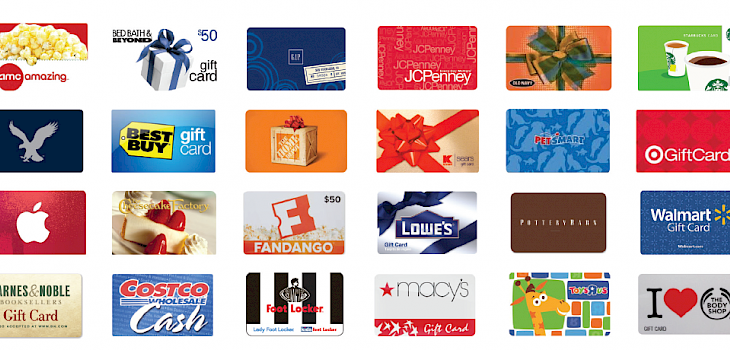Compact, versatile, available everywhere and easy to give – gift cards will again be at the top of many holiday shoppers' lists this year. So if you run across a way to get free or steeply discounted gift cards, you should go for it, right? Not necessarily. The Wisconsin Department of Agriculture, Trade and Consumer Protection asks shoppers to use caution when facing promises of cut-rate or free gift cards.
"The fact that gift cards are so popular makes them a favorite tool for scammers looking to separate you from your money," said Frank Frassetto, Division Administrator for Trade and Consumer Protection. "Fake second-hand gift card sales and free card scams on social media sites and in text messages are ways scammers may try to take advantage of your interest."
Gift card resale
It is best to buy gift cards directly from the retailer or from an authorized merchant, but if you are considering buying an unused card secondhand, purchase it from someone you know and trust. Used or unwanted gift cards show up for sale online through auction sites and classified ads, and while some cards may be legitimate, others may be counterfeit, may be drained of their value, or may have been stolen from a store and never activated at a register. If the gift card merchant discovers that your card is fraudulent, the merchant will deactivate the gift card and refuse to honor it for purchases.
"Free card" scams
Gift cards have been used as the bait in a number of social media, text message and email scams. In one major nationwide scheme, scammers created fake websites with bogus free gift card offers in order to trick consumers into providing their mobile phone numbers. The scammers then placed monthly subscription fees for a variety of "services" on consumers' mobile phone bills without their authorization.
In other fraudulent operations, illegal spam text messages have promised gift cards from a major retailer in exchange for completing a (phony) survey or providing personal information. Respondents never received a gift card and their information may have been sold by scammers to marketers, other scammers and identity thieves. Making matters worse, message recipients had to click a link in the message to access the survey or to provide information, opening up the risk of malware transmission to their devices.
If you receive an unsolicited message promising a free gift card, do not click any links and delete the message.
For additional information or to file a complaint, visit the Consumer Protection Bureau at datcp.wisconsin.gov, send an e-mail to datcphotline@wisconsin.gov or call the Consumer Protection Hotline toll-free at 1-800-422-7128.
Connect with us on Facebook at www.facebook.com/wiconsumer.
Last Update: Nov 23, 2016 1:30 pm CST
















